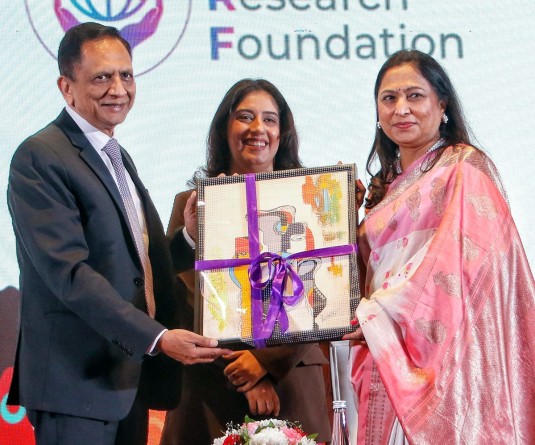Morung Photo by Manen Aier

Morung Photo by Manen Aier
BY N. LOTHUNGBENI HUMTSOE
New Delhi, May 17 (IANSlife) We are certainly aware of the medical and economic consequences of COVID 19; but what is also critical is the psychological aspect of this fight, especially for children -- in their families, isolation facilities, child care institutions as well as NGO run shelter facilities.
There is a need to educate parents and caregivers to support children in these difficult times and build their social and psychological resilience.
It is natural for the children to feel stress, anxiety, grief, and worry during an ongoing pandemic like COVID-19. Fear and anxiety about their own health and the health of loved ones can be overwhelming and cause strong emotions. In today's digital world, children also access different kinds of information and news through social media and digital platforms, some of them may not be factually true, causing further stress and anxiety. It is enhanced when children are not able to go out, play, attend school or interact freely.
Here are some tips by by Deepika Gandhi, Coordinator-Mental Health Initiatives, Miracle Foundation India to protect your child mentally and emotionally in isolation:
Understand that reactions to the pandemic may vary
Children's responses to stressful events are unique and varied. Some children may be irritable or clingy, and some may regress, demand extra attention, or have difficulty with self-care, sleeping, and eating. New and challenging behaviours are natural responses, and adults can help by showing empathy and patience and by calmly setting limits when needed.
Ensure the presence of a responsive and sensitive caregiver
The primary factor in recovery from a traumatic event is the presence of a supportive, caring adult in a child's life. Even when a parent is not available, children can benefit greatly from care provided by other adults (e.g., caretaker, relatives, friends) who can offer them consistent, sensitive care that helps protect them from a pandemic's harmful effects.
Social distancing should not mean social isolation
Children, especially young children -- need quality time with their caregivers and other important people in their lives. Social connectedness improves children's chances of showing resilience to adversity. Creative approaches to staying connected are important (e.g., writing letters, online video chats).
Provide age-appropriate information
Children tend to rely on their imaginations when they lack adequate information.. Adults' decisions to withhold information are usually more stressful for children than telling the truth in age-appropriate ways. Adults should instead make themselves available for children to ask questions and talk about their concerns. In addition, adults' should limit children's exposure to media coverage, social media and adult conversations about the pandemic, as these channels may be less age-appropriate.
Create a safe physical and emotional environment
Reassurance, routines and regulation- first, adults should reassure children about their safety and the safety of loved ones, and tell them that it is adults' job to ensure their safety. Second, adults should maintain routines to provide children with a sense of safety and predictability (e.g., regular bedtimes and meals, daily schedules for learning and play). And third, adults should support children's development of regulation. To help them manage these reactions, it is important to both validate their feelings (e.g., "I know that this might feel scary or overwhelming") and encourage them to engage in activities that help them self-regulate (e.g., exercise, deep breathing, mindfulness or meditation activities, regular routines for sleeping and eating).
Emphasise strengths, hope and positivity
Children need to feel safe, secure, and positive about their present and future. Adults can help by focusing children's attention on stories about how people come together, find creative solutions to difficult problems, and overcome adversity during the epidemic. Talking about these stories can be healing and reassuring to children and adults alike.






